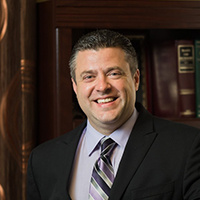Bullard Felony Lawyer, Texas
Sponsored Law Firm
-
 x
x

Click For More Info:
-
Law Office of Robert R. Jones III
2411 Emancipation Ave, Suite 202, Houston, TX 77004» view mapCriminal Defense Expert Representation for Reasonable Rates
If you need representation, call me 24/7.
800-883-8760
Not enough matches for Bullard Felony lawyer.
Below are all Bullard Criminal lawyers.
Jeremy Daniel Coe
✓ VERIFIEDPersonal Injury, Immigration, Criminal, Divorce & Family Law
Jeremy Coe is a fourth-generation East Texan. He graduated from Winnsboro High School in 1991, where he was selected as “Best All-Around Boy.” A... (more)
Richard B. Patteson
✓ VERIFIEDEstate Planning, Elder Law, Family Law, Criminal, Estate
Put 30 years of experience to work for you.
A native of Jonesboro, Arkansas, Richard completed high school at The Hill School, a preparatory school in Pottstown, Pennsylvania, then graduated cum... (more)
Charles G. Morton
Commercial Real Estate, Wills, Family Law, Criminal
Status: In Good Standing Licensed: 57 Years
Cynthia S. Kent
Family Law, Juvenile Law, Criminal, Clean Air Practice
Status: In Good Standing Licensed: 47 Years
Nicholas Summers Peacock
Juvenile Law, Personal Injury, Domestic Violence & Neglect, Mass Torts, DUI-DWI
Status: In Good Standing Licensed: 20 Years
Michael Douglas Findlay
Lawsuit & Dispute, Intellectual Property, Criminal, Civil & Human Rights
Status: In Good Standing Licensed: 36 Years
 Robert Jones San Antonio, TX
Robert Jones San Antonio, TX AboutLaw Office of Robert R. Jones III
AboutLaw Office of Robert R. Jones III Practice AreasSpecializations
Practice AreasSpecializations



